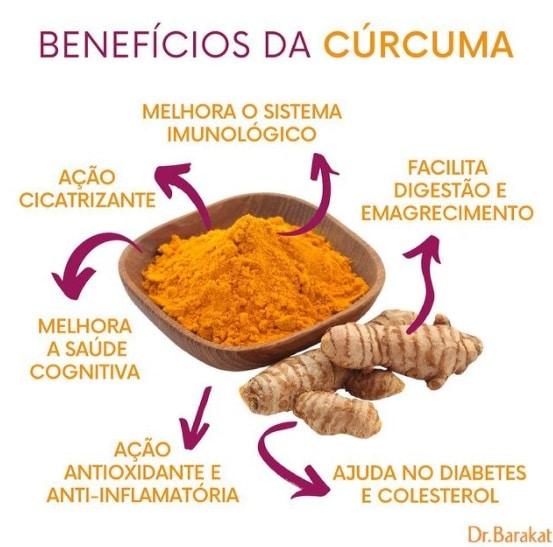
What is curcumin
La curcumin is one of the main active compounds present in the rhizome of turmeric, a plant belonging to the Zingiberaceae family.
Turmeric (Curcuma longa L.) is cultivated in tropical regions for the tuberized rhizome trade, widely used in cooking and in herbal medicine.
The turmeric rhizome represents the drug of this plant and contains yellow colored substances called curcuminoidi, among which curcumin is the most important.
In addition to curcumin, turmeric also contains a essential oil, monosaccharides (especially fructose) and polysaccharides.
Curcumin and essential oil are primarily responsible for turmeric's properties and benefits, and the dried drug is titrated in curcumin and essential oil, which they must both represent no less than 3% of the total constituents.
Curcumin: properties and benefits
The curcumin present in the turmeric rhizome is one of the main substances responsible for the effects benefits of turmeric.
Curcumin is mainly used in the treatment of digestive disorders thanks to its choleretic and cholagogue, carminative and antispasmodic action.
Taking curcumin therefore increases bile production and flow as well swelling decreases and abdominal pain, improving digestion.
Curcumin also has an anti-inflammatory and antioxidant action and for this reason it is often included in supplements used in case of pain of inflammatory origin as back pain or osteoarticular pain and as an adjunct in the treatment of neurodegenerative diseases.
Turmeric intake is often recommended for losing weight since turmeric appears to be able to inhibit the differentiation of adipocytes.
Curcumin: what the studies say
Curcumin boasts numerous beneficial properties for health: there are over 3000 in vitro, in vivo and human studies related to the benefits of turmeric and curcumin.
In some in vitro studies, curcumin has shown anti-inflammatory activity due toinhibition of the anthraquinonic acid cascade and the release of substances involved in inflammation processes.
Also in vitro, curcumin has shown an antioxidant action reducing lipid peroxidation induced by pro-oxidants.
The protection from hepatotoxicity drug induced. On the other hand, in vivo studies have shown how curcumin in low doses protects against induced ulcers.
Also in vivo, the cholagogue and choleretic action of curcumin has been demonstrated e the relationship between curcumin intake and tumor proliferation, highlighting a protective effect of curcumin against proliferation, invasion, angiogenesis of different types of tumors.
Human studies have confirmed theanti-ulcer action and anti-inflammatory and the reduction of dyspeptic disorders associated with the intake of curcumin.
Curcumin has also been extensively studied for its benefits in neurodegenerative diseases such as Alzheimer's and studies are underway on a possible use of curcumin for treatment of depression.
Curcumin, the problem of bioavailability
Although curcumin has numerous properties, it is not easy to enjoy the benefits of this natural remedy. Pure curcumin is in fact a molecule characterized by chemical instability, poor solubility in water and gives rapid conjugation in the liver.
Such characteristics make curcumin one little bioavailable molecule, that is, difficult to absorb and usable by our body.
In addition, some of curcumin's properties have been demonstrated at particularly high dosages, such as to cause side effects.
For this reason, methods are sought to increase the bioavailability of curcumin, for example, combining curcumin with piperine (piperine decreases the excretion of curcumin, increasing its availability for the body) or through the synthesis of curcumin analogues, in order to obtain an effective product at tolerable dosages.
Curcumin: how to take it
Usually curcumin it is taken through the use of turmeric supplements titrated in curcumin.
Curcumin is often associated with piperine which, as we have seen, increases its availability for the body.
It is not recommended to take turmeric in the form of herbal tea since both curcumin and essential oil are not very soluble in water.
The daily dosages of curcumin vary in relation to the disorder to be treated but generally 3 g of drug per day should not be exceeded, equal to about 200 mg of curcumin.
Turmeric is considered a safe drug but its intake is not recommended in case of biliary obstruction and, at high dosages or for prolonged intake, it can cause side effects including ulcer.


























